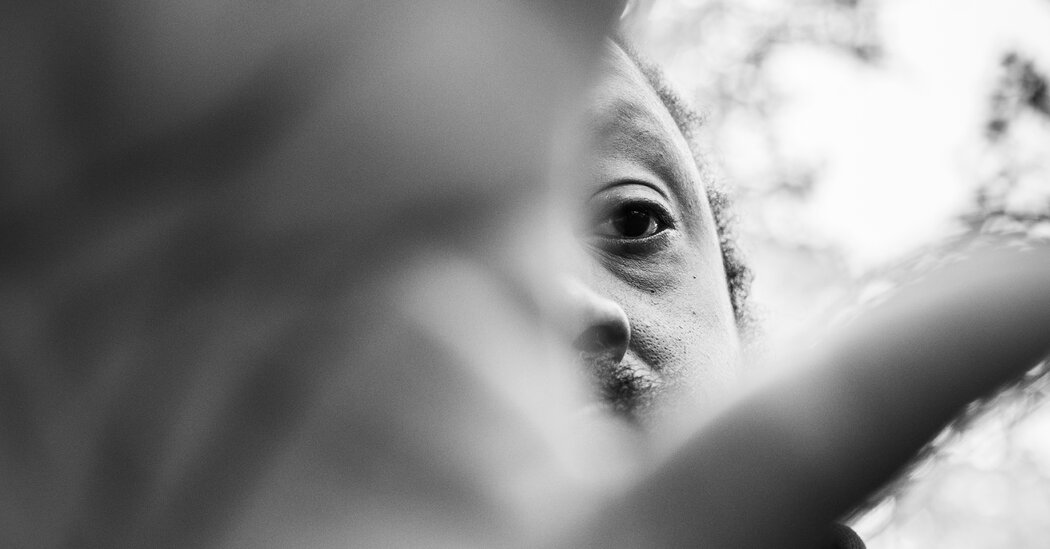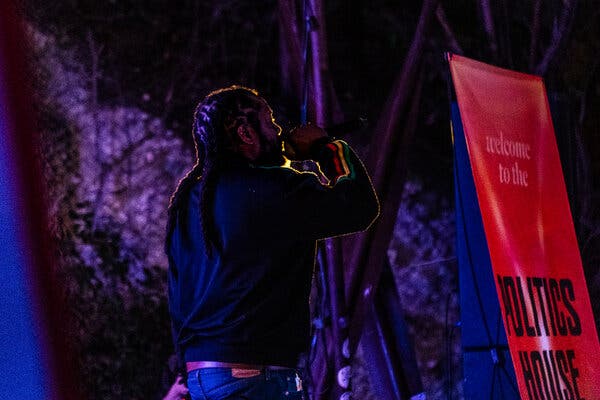Billy Woods Is Scary Good at Rapping

When Billy Woods was a child, he was afraid of lots of things.
Born in Washington, D.C., but raised in Zimbabwe, where his father was a member of Robert Mugabe’s revolutionary government, the boy who would grow into one of his generation’s beloved underground rappers was frightened by a storage room under the stairs in his family’s house. At night, he imagined that something was beneath his bed, and if his closet door was ajar, that was cause for alarm too. He was scared of apartheid South Africa, which bordered Zimbabwe to the south, and the soldiers he encountered at roadblocks. Sometimes he was scared of his parents.
“I didn’t grow up around reasonable people,” he said in a recent interview, a charged understatement about a childhood tumbled by history.
Woods typically plans his solo projects around a particular conceit or theme, and “Golliwog,” his 12th, which was released last week, is a collection of horror stories. Some are darkly comic, others decidedly less so. They draw on his youthful experiences and contemporary geopolitical terrors, as well as more mundane adult concerns, like romance and renting in modern-day New York, where he has lived on and off since 1995.
“Golliwog” arrives at a peak in his decades-long career as an independent artist, carrying on a local tradition of proudly trend-resistant, verbally inventive hip-hop that includes acts like MF Doom, the Juggaknots and Company Flow. All of Woods’s solo music is available through Backwoodz Studios, the label he founded in 2002, which also releases the work of like-minded artists including his frequent collaborator, Elucid; together the pair record as Armand Hammer.
“Something that my mother always was stressing was that if you wanted to do art, you couldn’t expect to pay your bills with it,” Woods said. He is in his late 40s now, the father of two children, and noted that “for most of my adult life I have been hustling to make ends meet.” He refuses to own a car, and up until 2018, lived with roommates to save money.

Woods started releasing solo LPs in 2003. Billy Woods, which he styles in lowercase letters, is not his real name; he avoids showing his face in photographs.Credit…Griffin Lotz/Rolling Stone, via Getty Images



